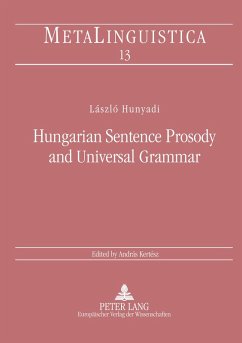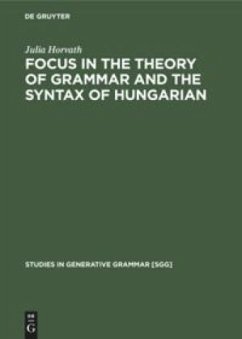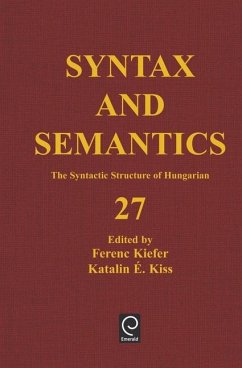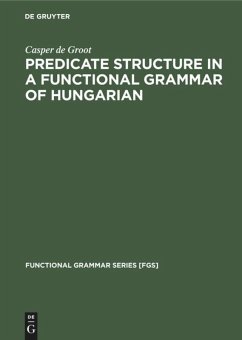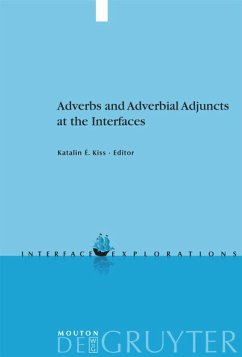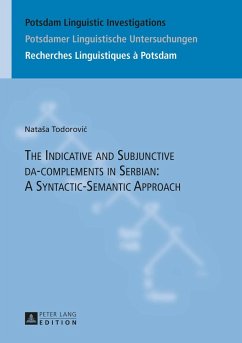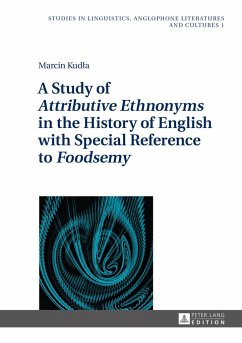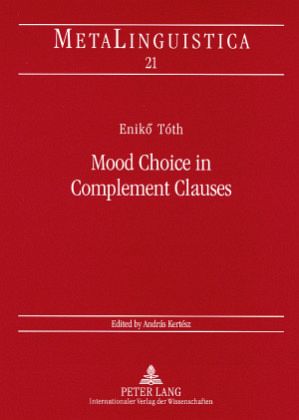
Mood Choice in Complement Clauses
A Semantic Approach with Special Reference to Hungarian
Versandkostenfrei!
Versandfertig in 6-10 Tagen
64,80 €
inkl. MwSt.

PAYBACK Punkte
0 °P sammeln!
The volume investigates various approaches to mood distribution and mood variation in lexically selected complement clauses with special reference to Hungarian data. Its primary aim is to show that semantic factors play a crucial role in mood choice. The analysis focuses on the indicative/non-indicative opposition, the latter category includes the subjunctive, the imperative and the conditional. Critical discussion, revision and elaboration of previous semantic approaches pertaining to mood choice are presented, with particular emphasis on the applicability of the various analyses to mood phen...
The volume investigates various approaches to mood distribution and mood variation in lexically selected complement clauses with special reference to Hungarian data. Its primary aim is to show that semantic factors play a crucial role in mood choice. The analysis focuses on the indicative/non-indicative opposition, the latter category includes the subjunctive, the imperative and the conditional. Critical discussion, revision and elaboration of previous semantic approaches pertaining to mood choice are presented, with particular emphasis on the applicability of the various analyses to mood phenomena in Hungarian. The author proposes two novel hypotheses about mood choice in Hungarian complement clauses.




